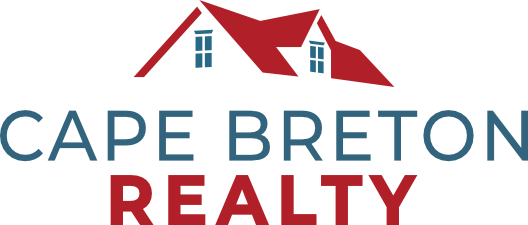By Sherry MacLeod
Managing Broker of Cape Breton Realty
Building a home is one of the biggest investments you’ll
make in your lifetime, and choosing the right contractor is key to
ensuring a successful project. For those in Cape Breton and other
rural areas, selecting a contractor presents unique challenges,
from limited choices to the specifi c needs of building in remote
locations. In this article, we’ll explore the skills and qualities to
look for in a contractor, how to assess their past work, and why a
detailed contract is crucial to protecting your investment.
Recently, several of our clients faced stressful and costly
issues due to poor contractor choices. While technical expertise
is essential when hiring a contractor, other important qualities
can make or break your home-building experience.
When selecting a contractor, look for someone with extensive
experience in building homes, particularly in rural settings.
Contractors familiar with remote areas like Cape Breton are
better equipped to handle logistical challenges, such as limited
access to utilities or transportation diffi culties. They should also
have a thorough understanding of local building codes, zoning
laws, and the permits required for your project. Ensure that the
contractor is licensed and carries adequate insurance. Licensing
guarantees that they know the local regulations, while insurance
protects both you and the contractor in case of accidents or
damages during the project.
Building in rural areas can bring additional complications,
from unpredictable weather to supply chain delays. A skilled
contractor must be an effective problem solver who can adapt to
unforeseen obstacles without causing major delays or escalating
costs. Effi cient planning and fl exibility are crucial.
Good communication is another essential quality. Your
contractor should keep you informed, answer your questions,
and provide regular updates on your home’s progress. This is
especially important in rural areas where you may not be able to
visit the site frequently. Clear and consistent communication can
help prevent misunderstandings and ensure the project stays on
track.
In addition, contractors familiar with Cape Breton or rural
areas often have better relationships with local suppliers and
subcontractors, which can lead to more competitive pricing and
smoother coordination of the project.
Once you’ve identifi ed potential contractors, verifying their
track record is essential. Request references from previous
clients and visit homes they’ve built to assess the quality of their
work and their reliability.
A reputable contractor will gladly provide references from past
clients. Reach out to those clients and ask about their overall
experience—did the contractor deliver quality work? Was the
project completed on time and within budget? How did they
handle any unexpected challenges? These conversations can
offer valuable insight into what it’s like to work with the contractor.
If possible, visit homes or buildings that the contractor has
completed. Seeing their work fi rsthand will give you a better sense
of their craftsmanship and attention to detail. If an in-person visit
isn’t feasible, ask for a portfolio of completed projects, including
photos and project details.
Additionally, check online reviews on websites, social media,
and Google. Many contractors have reviews available, offering
a broader perspective on their work. Be cautious of contractors
with consistently poor feedback, legal issues, or fi nancial
troubles, such as bankruptcy. If you’re new to the area, consider
asking locals for recommendations or feedback on particular
contractors.
No matter how well recommended a contractor is or how
much trust you’ve developed during the selection process, a
detailed contract is crucial before any work begins.
The contract should clearly outline the scope of work,
including materials, timelines, costs, and any special requests.
In rural areas like Cape Breton, where resources may be limited,
clarity on potential delays and challenges is especially important.
A clear payment schedule should also be included. This
protects you from paying for incomplete work or undelivered
materials, ensuring that payments are made based on the
project’s progress.
Although disputes are rare, a well-constructed contract
should include a dispute resolution process. This helps resolve
any issues fairly and effi ciently if disagreements arise during
construction.
I always recommend obtaining multiple quotes when selecting
a contractor. Make sure that each quote includes a full material
list so you can accurately compare costs and details—essentially,
comparing apples to apples. Be mindful of overages, as many
projects incur extra costs. While this is normal, it’s important to
keep these additional expenses under control to prevent them
from spiralling out of hand.
Building a home in Cape Breton or another rural area requires
careful planning and the right contractor. Look for a contractor
with the perfect mix of experience, skills, and local knowledge.
Do your homework—check references, view past projects, and
read reviews. Most importantly, protect yourself with a detailed
contract that covers every aspect of the project. With the right
contractor on board, you can turn your dream home into a reality
in a smooth and rewarding process.
Good luck with your new home


